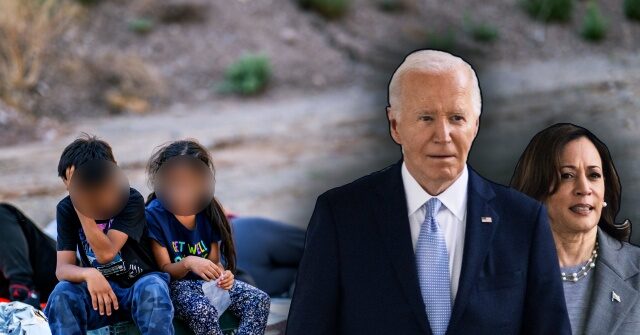President Joe Biden’s immigration policies have significantly shifted public perception of migration in the United States, primarily due to the perceived mismanagement of the influx of migrants that accompanied his administration. Andrea Flores, a prominent lobbyist for FWD.us—a leading pro-migration organization—asserted that the public backlash against Biden’s immigration agenda arose from a lack of clarity and support from the Democratic Party during a critical period. Flores noted that the situation appeared chaotic to many citizens: the visible presence of asylum seekers in cities, inadequate federal support for overwhelmed local officials, and long-standing undocumented immigrants witnessing new arrivals receive benefits before they did. This disarray led to a detrimental narrative that ultimately affected the Democrats’ standing with the public.
In contrast, Mark Krikorian, director of the Center for Immigration Studies, criticized the Democrats for focusing on messaging rather than addressing the substantive implications of their immigration policies. He highlighted that the reality of the situation often overshadowed any attempts to manipulate public perception. For instance, when communities faced the repercussions of migration, such as overwhelmed local services or crime incidents allegedly linked to the new influx, the narrative surrounding immigration could not counter these stark realities. Krikorian emphasized that attempts to soothe public concerns about functional chaos in local communities fell flat because the narrative was incongruent with lived experiences. This prompted Flores to suggest that the Democrats’ strategy failed because they did not allocate sufficient resources to manage the challenges posed by increased migration.
FWD.us has played a crucial role in shaping immigration policy for the Democratic Party, especially following the electoral victories of Biden and Senator Kamala Harris. The organization, founded by prominent figures like Mark Zuckerberg, initially sought to advance a comprehensive immigration reform bill. Since then, they have worked closely with key administration figures, like Department of Homeland Security Secretary Alejandro Mayorkas, to promote policies framed as “humane, orderly, and safe.” However, critics argue that while FWD.us has significantly influenced immigration policy, it has also been a double-edged sword—alienating some voters, particularly after dramatic electoral setbacks in November’s elections, where the pro-migration agenda was seen as a liability.
During a cinema event in Washington, D.C., reflecting on the recent electoral losses, Flores underscored that the Democrats had not effectively prepared for the consequences of Biden’s migration policies. She pointed out that initial support for increasing immigration has dwindled over four years, leading to a rise in public opposition. Her claim underscored a growing sentiment that the chaos resulting from mismanaged immigration had nothing to do with anti-immigrant sentiments but rather with a refusal to accept a system incapable of effectively handling migrants and bolstering local communities. Flores noted the detrimental effect of narratives linking immigration to broader economic issues, which, unchallenged, allowed opposing narratives—especially those championed by Trump—to gain traction among the electorate.
Encouraging her progressive allies during the group meeting, FWD.us president Todd Schulte outlined a path forward to create a more comprehensive and welcoming immigration system that aligns with modern needs. Schulte’s articulation of the vision included calls to maintain ethical approaches and emphasize responsible management practices to ensure that U.S. immigration systems meet current and future demands. This advocacy placed a stark contrast against the backdrop of an incoming administration led by Trump, whose policies could lead to a drastic reduction in migration. Schulte encouraged attendees to remain mobilized around pro-migration stances and to improve their narrative strategies to regain public trust and counteract the looming threat of stricter immigration measures.
The conversation surrounding the cinematic event carried the weight of impending political challenges for FWD.us. As more voices from within the organization expressed fears about how Trump’s potential return could derail progress made under Biden and Mayorkas, many members began contemplating potential exit strategies, with some considering leaving the country. Moreover, the mixed signals sent by Zuckerberg—who was seen meeting with Trump post-election—suggested a complicity of tech moguls with the President’s agenda, further complicating the progressive messaging around migration. Flores’ emphasis on local organizing and resistance to federal enforcement highlighted a determination among pro-migration advocates to protect immigrant rights, even as a complicated political landscape drew nearer.
Overall, the aftermath of the recent elections demonstrates the fragility of the pro-migration agenda and the need for a comprehensive approach that truly addresses public concerns while advocating for migrants. The discussions at the D.C. cinema underscore a pivotal moment for FWD.us and its allies, as they strategize ways to reconcile the necessity of economic immigration with the realities of public sentiment. Moving forward, the challenge lies in balancing the narrative around immigration policy to rebuild trust among communities strained by recent migration policies and to preemptively address the obstacles posed by an administration that could revert to more restrictive measures on immigration.

